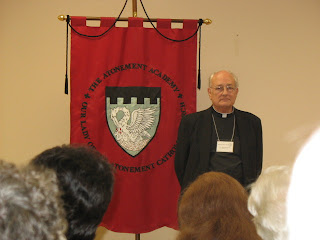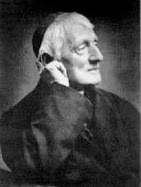One of the reasons I have neglected my blogging duties is that I have been busy with several projects, some of which will be the subject of upcoming blog entries. Stay tuned.
One project that has kept me and my husband busy lately is teaching an adult class at our parish--the second installment of "Catholic Christianity: Re-Introduction to the Faith." The text we are using is Peter Kreeft's Catholic Christianity (pictured at right), and the class this fall is devoted to the second section on "Catholic Morality." The materials are very good, and we are enjoying the class. Last Sunday's focus was natural law. What is even more intriguing is the process of trying to create a culture of adult faith formation at a Catholic parish. As evangelicals we took adult "Sunday school" for granted; we have found this not to be the case in the Catholic Church, in general. Catholic Mom has written a good deal about her experience (here, for instance) of trying to teach CCD students whose parents are ill-equipped to reinforce what she teaches. Fortunately for us she teaches at my parish and has broken some ground in this area. In addition to teaching CCD again this year, she is currently teaching an adult class on the Theology of the Body.
I was recruited a couple of weeks ago to help promote the local "40 Days for Life" campaign, a national effort to encourage prayer & fasting for 40 days to end abortion in America. The focus of my efforts is the prayer vigil at a site in Alexandria, one of four sites in Northern Virginia. To be precise, I was asked to recruit Protestant churches to join in. I have done the best I can on short notice, and most churches I have contacted have been receptive and willing to publicize the campaign however they can. It's not entirely clear to me why this was left to the last minute, but I try not to think about it too much. At the very least maybe my efforts can lay the ground work so that next year's campaign will be more "ecumenical."
To find out more about the 40 Days campaign in your area, visit their website at www.40daysforlife.com.
And speaking of the issue of human dignity (a.k.a., the sanctity of life): With the "silly season" of election year politics upon us, I have found it fascinating to see this issue take center stage. First there was Nancy Pelosi's inept pontifications about when life begins and what the early Church Fathers (Augustine in particular) allegedly had to say about it. Then to see the Catholic bishops, especially some of the real stand outs among them, respond forcefully to Speaker Pelosi's comments with a lesson on what the Church actually teaches. Then the nomination of Sarah Palin as the Republican VP nominee--a woman whose life in many ways embodies the pro-life movement. And then to see the priests in my own parish preach equally forcefully and unequivocally about the duty of Catholic voters to consider this issue as paramount.... All of this has been, to borrow a phrase I have borrowed before from Proverbs, “like cold water to a thirsty soul.” Not that I have not heard equally strong pro-life preaching from Protestant pulpits, and even from some brave Episcopal bishops. But now I have the added assurance that the bishops are supported from the top. To be sure, in some cases they are being prodded from the top, but the scandal of pro-abortion Catholic politicians is being exposed, and no one can be in any doubt about what the Church teaches on the subject.
Enough for now. More later. The dog is lobbying hard for a walk at the moment, and she is hard to ignore.



























